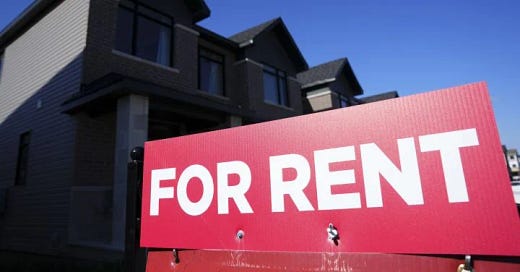In recent years, the Canadian rental market has become increasingly tight, leaving many renters struggling to find affordable housing. This trend is affecting cities across the country, from coast to coast, with the situation being particularly acute in urban areas such as Toronto and Vancouver. The shortage of available rental units has led to skyrocketing rents, long waiting lists for units, and intense competition for the few affordable options that do become available.
One of the key factors contributing to the tight rental market is a shortage of new construction. Despite a growing population, there has been a slowdown in the construction of new rental units, with many developers choosing to focus on building condos instead. This has led to a scarcity of available units, which in turn has driven up rents and made it harder for renters to find an affordable place to live.
Another factor contributing to the tight rental market is the growing number of people who are choosing to rent rather than buy. With the cost of homeownership becoming increasingly unaffordable, more and more people are opting to rent, putting further pressure on an already tight market. In addition, there has been a rise in the number of people who are forced to rent due to financial difficulties, such as job loss or medical bills.
The tight rental market has far-reaching impacts on the lives of renters. For many, the high cost of rent is forcing them to choose between paying for housing and other necessities, such as food and healthcare. In some cases, renters are being forced to live in overcrowded or substandard housing because it's all they can afford. The lack of affordable options is also leading to homelessness and the creation of informal, unregulated housing markets.
The tight rental market is a complex issue with no easy solutions. However, there are steps that can be taken to help ease the squeeze. One of the most important is to encourage the construction of new rental units, including those that are affordable for low- and middle-income renters. In addition, there is a need for programs and policies that support renters, such as rent control measures and assistance with housing costs.
The tight Canadian rental market is a pressing issue that requires action from all levels of government, developers, and community organizations. With the right solutions, it is possible to address the shortage of affordable rental housing and ensure that everyone has access to a safe and affordable place to call home.








